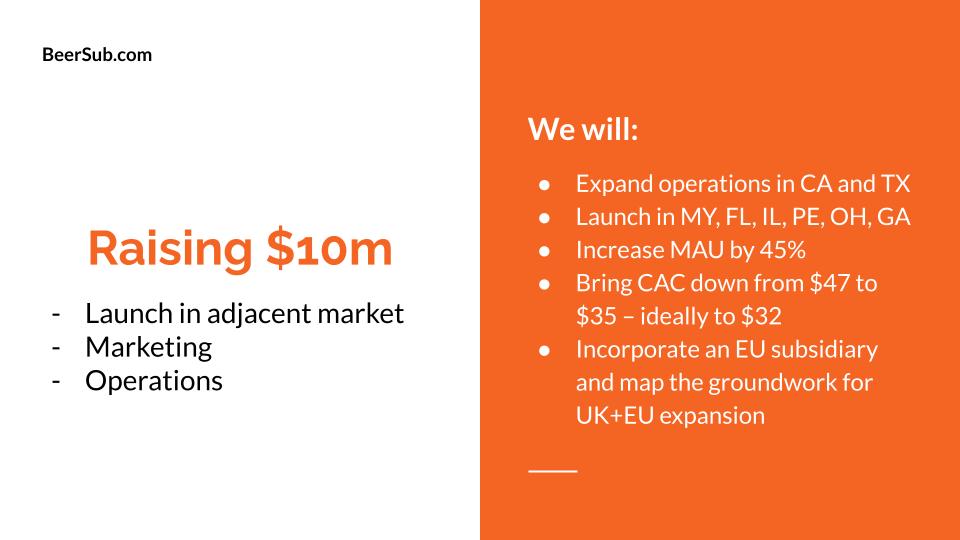TechCrunch |
- Crypto trading volume drops in India as additional taxes hit investors
- How one state’s aggressive climate policy could boost its economy
- Outschool, which raised a Series B, C and D in 12 months, lays off 18% of workforce
- Veo’s Candice Xie one year later, still slowly and steadily winning the profitability race
- Voyantis emerges from stealth to predict customer lifetime value
- Matt Mullenweg thinks Tumblr can be a better Twitter than Twitter ever was
- 4 negotiation points startup founders must focus on in a down market
- TechCrunch+ roundup: Overinflated valuations, equity crowdfunding, SCOTUS v. climate tech
- UK signs its first data sharing deal post-Brexit, with South Korea
- Register now for the new and improved TechCrunch Live weekly event series!
| Crypto trading volume drops in India as additional taxes hit investors Posted: 05 Jul 2022 01:30 PM PDT India's government on July 1 implemented a 1% tax deducted at the source (TDS) on every cryptocurrency trade over 10,000 Indian rupees, or about $127. The law has only been in place a few days, but there's already been a chilling effect on Indian digital asset marketplaces. The levy is an addition to the 30% tax on all crypto-based incomes that began on April 1, which is double India's 15% capital gains tax on short-term gains for traditional equities and shares. The increasing taxation could serve as a further roadblock for citizens looking to trade crypto as the potential for financial gains dwindles. |
| How one state’s aggressive climate policy could boost its economy Posted: 05 Jul 2022 12:30 PM PDT Rhode Island leaped ahead in the race to 100% renewable power last week as Governor Dan McKee signed a bill that would mandate the state reach the target by 2033, the most aggressive state target so far. Only Oregon comes close, and it's shooting for 2040. In some respects, Rhode Island has it easy. With a population of a little over 1 million people, it's smaller than many metro areas, so switching to renewables isn't the enormous undertaking it would be in California or Texas. But on the other hand, renewables tend to need a lot of space, and the state's 1 million people are tightly packed — Rhode Island is the second most densely populated state in the country. While Rhode Island may not have space, it does have plenty of open water blessed with strong and consistent winds, which makes it an ideal place for offshore wind. Which is why the state's swift move to renewable power is as much about addressing climate change as it is about securing the state's economic future. |
| Outschool, which raised a Series B, C and D in 12 months, lays off 18% of workforce Posted: 05 Jul 2022 12:02 PM PDT Outschool, a marketplace for kid-friendly, virtual after-school programs, has laid off 31 people or 18% of its workforce, CEO Amir Nathoo confirmed to TechCrunch over text message. The layoff, conducted last month, comes after a period of rapid fundraising for Outschool. The firm raised its Series B, C and D in a 12-month period, most recently growing its valuation to $3 billion after hitting a $1 billion valuation just four months earlier. The capital was used to help Outschool grow from an early-stage startup into a growth stage company. In October 2021, the company announced it had attracted over $100 million in bookings on its platform. Nathoo then explained the need to staff up quickly to meet unprecedented demand; growing from 25 employees to 164. Now, the co-founder said "it's no secret that market conditions have rapidly shifted." "We recognized the need to be more defensive going into the second half of the year," Nathoo said. "This was one of the most difficult decisions I have had to make in my career but we have tried to do right by some truly talented and amazing people." A spokesperson over email said that layoffs impacted all teams, including those at VP level, "to ensure that operations continue to be optimized companywide." They also confirmed that 75% of the employees joined in the past two years. Outschool did not provide full details of severance but said that it was a "very generous package." The company asserts that it has over three years of runway, with no need to raise anytime soon. Still, the layoffs put a brighter spotlight on the challenges of marketplace startups and the difficulty of being a growth-stage company that wants to serve children. Months ago, when I asked Nathoo about the clash of incentives between venture and its core clientele, he said that “we've been venture funded from the very start, and I hope our actions, and how we go about our work reflects our values … the fact that venture funding hasn't affected the fact that we're a mission-driven company and values-driven company, and that's not going to change." Outschool more recently has shifted focus from single customers to enterprise deals through schools or employer benefits. In the next five years, the company hopes that more than half of the enrollments on the platform are coming from employers and schools. |
| Veo’s Candice Xie one year later, still slowly and steadily winning the profitability race Posted: 05 Jul 2022 11:30 AM PDT When you think about shared micromobility, Veo isn't exactly the first company that comes to mind. It's not as widespread as competitors like Voi, Tier and Lime, and it hasn't raised nearly as much in venture capital. But as consolidation and, simply put, bad business shapes the industry, Veo has maintained a steady and profitable pace. That is, if CEO and co-founder Candice Xie is to be believed. Veo, which is perhaps most noted for its comfortable sit-down scooters and its continued presence in New York City's e-scooter pilot, has stuck by a business model that looks at micromobility more as a utility and less as a startup. Rather than raising tons of money to expand as quickly as possible in the hope of achieving favorable unit economics, Veo has slowly focused on being sustainable, one city at a time. In June 2021, Veo was in 22 markets. Today, it’s in 27, almost all of which are exclusive or limited vendor contracts.
“I’m truly a believer that this industry takes time to build, and whoever survives is the most important thing. Long term, who can weather all the crazy market turbulence?” Veo CEO Candice Xie While VCs might shudder at such apparently slow growth — Lime’s global city count is around 225 — Xie says Veo is on track to maintain a sustainable business that continues to turn over profits. We sat down with Xie one year after our initial interview to talk about what is going on with all these layoffs, why scooter ADAS isn’t all it’s cracked up to be and how a sustainable financial base can help startups weather market turmoil. The following interview, part of an ongoing series with founders who are building transportation companies, has been edited for length and clarity. |
| Voyantis emerges from stealth to predict customer lifetime value Posted: 05 Jul 2022 11:00 AM PDT Voyantis, a startup developing tools to estimate a customer’s lifetime value, today emerged from stealth with $19 million in seed funding from Target Global, Square Peg, Schusterman Family Investments, Kaedan Capital and Operator Partners. CEO Ido Wiesenberg tells TechCrunch that the funds will be used to expand Voyantis’ product offering and support more use cases in the future. Wiesenberg and Eran Friendinger founded Voyantis in 2020, motivated by the idea that many companies today base growth and marketing decisions on spreadsheets — or so Weisenberg claims. “Traditional methods were making it difficult to both analyze and utilize company-owned data to make informed time-sensitive decisions and activate growth,” he told TechCrunch in an email. “These days, as all companies are making the shift to get on the path to profitability, it is crucial to understand and act on the future value of each user.” Wiesenberg previously co-launched over-the-top tech provider Tvinci and Frido Communication, a digital marketing boutique. Friendinger was one of the founding members of Adience, a platform for publishers that used AI to profile smartphone users. Wiesenberg doesn’t posit that Voyantis can predict the future. But he says that the platform, by applying machine learning algorithms to thousands of data points, can project a user's future propensity and lifetime value shortly after acquisition and throughout their journey. When applied to ad campaigns, he says, these predictions can be used by marketing teams to make campaign decisions, or fed as signals into ad networks and marketing automation platforms such as Google, Facebook, Klaviyo, Braze and Hubspot. “We build a continuous ‘flurry of models’ to predict the lifetime value at different levels of maturity in the customer's lifetime for a myriad business use cases,” Wiesenberg explained. “That allows a continuous business utility of the predictive power of modeling. We [also] build an AI ‘orchestration algorithm’ that decides when to activate a prediction. This is all while taking into account the business reward, or cost of predicting early enough versus the increased confidence you get the longer you wait. This meta-algorithm is what creates the secret sauce, connecting the business impact with the ‘dry’ machine-learning mathematical formulation.” To protect customers’ privacy, Voyantis only stores anonymous usage data, according to Wiesenberg. “[Using Voyantis,] C-level executives can set predictable long-term goals and measure them within the quarter,” Wiesenberg said. “The VP and director levels can set their individual team's goal as a derivative. [And the] operational teams can activate machine learning-fueled workflows that optimize to those same KPIs.” Can AI accurately predict a customer’s lifetime value? Plenty of startups besides Voyantis suggest that it can, including DataScience and Ocurate. One Voyantis rival, Black Crow AI, advertises a product that can ostensibly figure out which products e-commerce customers are most likely to buy. While there’s reason to be skeptical, Wiesenberg points to Voyantis’ expansion as evidence that there’s credence to his claims. The over-50-employee company is generating “seven figures” in annual revenue (Wiesenberg declined to get more specific than that) and counts brands like Notion among its customers. “Amid the current downturn, the current trend is a shift in mindset — going back to basics. This is seen in the way growth leaders are making sure their unit economics work and that their companies have a path to profitability set in place,” Wiesenberg said. “This creates an amazing opportunity for Voyantis, as our mission is to help customers focus on the right users, therefore increasing their efficiency — improving unit economics. Given the general trend, it is no surprise this has been by far our best quarter to date.” |
| Matt Mullenweg thinks Tumblr can be a better Twitter than Twitter ever was Posted: 05 Jul 2022 11:00 AM PDT Welcome Back to Found, the TechCrunch podcast where we get the stories behind the startups. It's rare we get to speak to someone who has been working at their company for 19 years so this conversation with Matt Mullenweg of Automattic and WordPress feels a little special. His journey to becoming a founder was grounded in a love for blogging and working on open source projects. Now WordPress is pretty much ubiquitous in the digital publishing world. While he was working on building WordPress into an undeniable force, parent-company Automattic has made strategic acquisitions. One of the most notable companies to join Automattic is Tumblr, which Mullenweg has big plans for. In this episode, he talks about why it’s important to keep all of these platforms open source and how he thinks Tumblr could begin to compete with Twitter. Take our listener survey and let us know a bit about yourself and what you think of FOUND. Connect with us:
|
| 4 negotiation points startup founders must focus on in a down market Posted: 05 Jul 2022 10:30 AM PDT For the first time in more than a year, venture capital funding saw a decline last quarter. For founders, this drop may spark concerns around how to secure capital, making them more likely to bend to investors’ terms and ignore details they wouldn’t otherwise. As founders bend over backward to get backing, legal due diligence can sometimes go overlooked. Not wading through the fine print could mean ending up with an unfavorable deal early on, which future investors will often try to replicate. This results in a hard-to-break cycle of poor investment terms. Negotiations can be daunting, especially when investors tend to have more experience, knowledge and resources. Investors also know that negotiations don’t stop at the agreed upon term sheet — valuation caps, discount rates, matching rights and board control all need to be reviewed and discussed. Before transitioning to investment, I was a partner at a law firm specializing in business issues. I’ve outlined below a few legal areas I recommend founders focus on, as well as some tips to finesse negotiation skills.
Take care to look beyond the immediate round and avoid creating problems for later because you don’t want to have a difficult conversation now. Research industry rounds to determine valuation capsA valuation cap is the maximum amount at which an investor can convert a SAFE (the equity contract between you and your investor) into equity. For example, if your investor’s valuation cap is $1 million and your company is valued at $1.5 million at your next fundraising round, your investor’s equity conversion would be limited to $1 million. Your investor is going to want to set a low valuation cap because it gives them a potentially larger percentage of your company at the next round. However, a low valuation cap isn’t always good for a startup, as it can dilute the company’s value and deter new investors from participating. You and your team drive the business, so you need to negotiate away from disproportionate future dilution. Look at companies that are at a similar maturity level and in the same industry. Research their funding rounds and understand the amount of growth (specifically, the KPIs) that led to their valuation increasing. |
| TechCrunch+ roundup: Overinflated valuations, equity crowdfunding, SCOTUS v. climate tech Posted: 05 Jul 2022 10:30 AM PDT My work in early-stage startups focused on operations, so I used Wikipedia to find the formula for calculating a company’s post-money valuation: PMV = N x P
So, if a company offers a round with 10 million shares and one investor pays $10 million for 1 million shares, that startup now has a post-money valuation of $100 million. But, to invoke the Norse god of thunder: Is it though? According to Bastian Hasslinger, an investor at Picus Capital, the ongoing market correction sending a shockwave through the tech industry isn’t just the result of overinflated expectations. Full TechCrunch+ articles are only available to members. All startups are overvalued because “not all shares are equal,” he writes. Different investor classes enjoy varying levels of downside protection, and as a result, “the model often implicitly overstates the true value of the company, even if the share price paid by the investor is fair.” Hasslinger describes the current moment as a “normalizing market,” which means the people who have the most to lose in terms of equity are startup employees, founders and investors who didn’t buy into premium share classes. If you work at a startup, this post is highly recommended reading: It’s a succinct explainer that will help you better understand the market forces currently driving down your company’s valuation. And remember: All valuations are hypothetical, so bear that in mind the next time you’re reviewing an offer letter. Thanks very much for reading, Walter Thompson 4 climate tech investors sound off on Supreme Court's EPA ruling Image Credits: Rudy Sulgan / Getty Images Last week, the U.S. Supreme Court limited the Environmental Protection Agency’s ability to regulate greenhouse gas emissions, a decision that could hobble American clean tech startups that aim to compete in the global market. Reporter Tim De Chant interviewed four climate tech experts to get their reactions:
Equity crowdfunding appears immune to market volatility, on track for its best year yet Image Credits: Getty Images Investors have cooled on early-stage startups, but equity crowdfunding continues apace, reports Rebecca Szkutak. In the first five months of 2022, crowdfunding platforms raised more than $215 million, a slight increase from $200 million during the same interval in 2021. “It's not a life-changing amount of money for most people,” said Krishan Arora, the founder and CEO of Arora Project. “People are investing in startups they really believe in and businesses they fundamentally believe they want to back.” OpenSea's $13B valuation doesn't make sense as NFT trading volumes plunge Image Credits: Nigel Sussman (opens in a new window) In January, NFT auction marketplace OpenSea closed a $300 million Series C that valued the company at $13.3 billion. Given the state of the Q2 NFT market, Alex Wilhelm tried to triangulate OpenSea’s current valuation. Assuming that its trading volume is $700 million, he pegs the company’s ARR at $8.4 billion for 2022. “How does annual run-rate revenue of $210 million look against a $13 billion valuation? Pretty terrible, frankly.” Without a clear ask, your pitch deck is useless Image Credits: Haje Jan Kamps (opens in a new window) I’ve written this before, but it’s worth repeating: Fundraising is difficult because most people don’t have any experience asking strangers for money. The “ask” slide where founders explain how they’ll spend investors’ money is particularly challenging. To break through the mental barrier, Haje Jan Kamps recommends starting out with metrics and milestones. How much will you increase MAU or lower CAC? What are your target dates for expanding in new markets? “The more specific your goals are, the easier it is to know whether you're trending toward them.” |
| UK signs its first data sharing deal post-Brexit, with South Korea Posted: 05 Jul 2022 10:28 AM PDT Six years on from the referendum where the United Kingdom voted to leave the EU, and in the midst of an apparent government meltdown, the country is announcing its first international data sharing deal: It’s inked an agreement with South Korea, which will allow organizations in the U.K. to transfer data to the Republic of Korea, and vice-versa, without restrictions. “Data transfers” cover any and all digital services that might be provisioned in one country but used or run in the other. It covers data in services like GPS and smart devices, online banking, research, internet services and more. South Korea is home to two of the world’s biggest tech and specifically mobile tech companies, Samsung and LG, and already represents some £1.33 billion ($1.6 billion) in international digital trade, the U.K. said. "Today marks a huge milestone for the U.K., the Republic of Korea and the high standards of data protection we share,” said U.K. Data Minister Julia Lopez in a statement. “Our new agreement will open up more digital trade to boost U.K. businesses and will enable more vital research that can improve the lives of people across the country.” "I am honored to agree to this joint statement today. Strengthening cooperation between the U.K. and the Republic of Korea based on the shared recognition of high standards of protection can contribute to forming a healthier and more sustainable global data landscape,” added Republic of Korea Commissioner of the Personal Information Protection Commission Jong in Yoon. South Korea was one of several countries earmarked for a so-called international data adequacy initiative aimed at “unlocking the benefits of free and secure cross-border data flows now the country has left the EU” — the others being the U.S., Australia and Singapore, the Dubai International Finance Centre and Colombia. “The government continues to make excellent progress in its discussions with other priority countries,” it said today. Ironically, had U.K. remained in the EU, it would be no further along in the effort it has achieved today: South Korea already has a data adequacy deal with Europe. Google, Mastercard and Microsoft were among the companies and outside experts advising the government on this deal as part of an International Data Transfer Expert Council formed earlier this year. The government argues that data transfers and the many regulations that have been built around them have led to “billions of pounds” of trade going “unrealized” due to navigating that landscape. Specifically, the U.K.’s Department of Digital, Culture, Media and Sport — which is overseeing the deal — said that the idea will be that now companies and organizations doing business across the two countries will be “able to share data freely and maintain high protection standards” while doing so. Given that the basics of the country’s respective data usage policies have theoretically been vetted and harmonized, parties will no longer have to deal with contractural safeguards, it said, including paperwork for International Data Transfer Agreements or Binding Corporate Rules. Still, you could argue that the time it’s taken, the fact that it’s only covering one country that would have been a partner the U.K. could have had (sans Brexit) anyway, and that fact that today’s deal is still not fully done — it’s just in “principle” — pulls the rug a little from under the argument that Brexit will lead to a lot less red tape for the U.K. going forward when it comes to trade deals. Getting the deals done with the rest of the priority list will be a start, however. The DCMS estimated that “data-enabled services” to the full list (which includes the U.S.) are currently worth more than £80 billion. |
| Register now for the new and improved TechCrunch Live weekly event series! Posted: 05 Jul 2022 10:10 AM PDT TechCrunch Live is a weekly event designed to help founders build better venture-backed businesses. The event series records live every Wednesday at 12:00 pm Pacific, and features industry-leading founders and venture capitalists as they talk through different parts of their business. We’ve had some great guests: Deel’s Alex Bouaziz and a16z’ Anish Acharya talked through raising without a pitch deck, and Front’s Mathilde Collin and Okta’s Frederic Kerrest spoke on unconventional investors. Just last week Forethought AI’s Deon Nicholas and Vanessa Larco, NEA partner, talked through Forethought’s pitch deck, which won Startup Battlefield 2018. With TechCrunch Live, it’s free to join, ask questions and apply for Pitch Practice, a segment of the event where the audience can pitch their startup to the event's guests and get feedback on how to improve their storytelling, presentation and company messaging. And now the event is even better! First, the event is switching platforms to Grip. With just one registration, our new online platform provides attendees with access to all of the TechCrunch Live events, including TechCrunch Live, City Spotlight, startup pitch practice, speed networking and other TechCrunch community events. Register here and join the TechCrunch Live online event platform and start adding TCL events to your calendar for free! Second, it's easier to apply for Pitch Practice. Each Wednesday, startups can apply for that day's Pitch Practice using this form. We'll select the startups an hour prior to the event and notify them by email. And if you're selected for one event, please apply for future events too. We want companies to present more than once using the feedback provided from previous experiences. Lastly, TechCrunch Live is now a weekly podcast and YouTube series, too. Because the event records live, it's understandable that some viewers will be unavailable. Past episodes are now available on YouTube and every major Podcast platform. We hope you can join us for future events! Have feedback about the show? Leave it here. |
| You are subscribed to email updates from TechCrunch. To stop receiving these emails, you may unsubscribe now. | Email delivery powered by Google |
| Google, 1600 Amphitheatre Parkway, Mountain View, CA 94043, United States | |

No comments:
Post a Comment